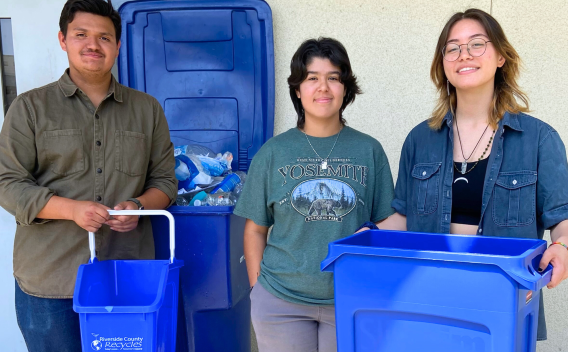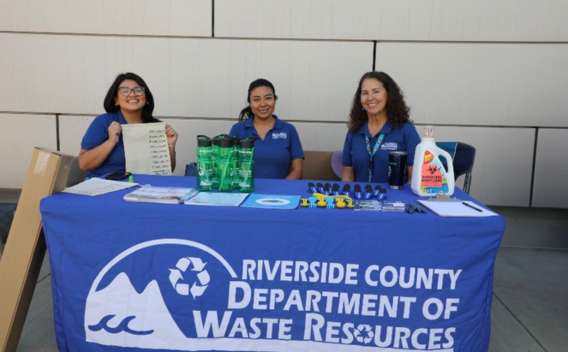School Waste Reduction Laws
Mandatory Commercial Recycling (AB 341)
The Mandatory Commercial Recycling (MCR) law went into effect in June 2012 and requires public entities that generate a certain threshold of solid waste per week to reuse, recycle, compost, or otherwise divert solid waste from disposal.
Mandatory Commercial Organics Recycling (AB 1826)
Mandatory Organic Recycling (MORe) requires regulated entities to implement an organic waste recycling program to divert food waste, green waste, landscape and pruning waste, nonhazardous wood waste, and food-soiled paper waste that is mixed in with food waste.
AB 827
Effective on July 1, 2020, AB 827 supports AB 341 and AB 1826 covered generators by making recycling and organic recycling containers available to customers. Wherever recycling or organic waste is generated, a school must provide an appropriate container adjacent to the solid waste container to capture and divert recycling and organic waste. Containers must be easily accessible, visible, and clearly labeled. CalRecycle has customizable labels available for download.
Short-Lived Climate Pollutants: Organic Waste Methane Emissions Reduction (SB 1383)
Effective on January 1, 2022, schools and local education agencies will be required to prevent, reduce the generation of, and recycle organic waste. Additionally, effective on January 1, 2024, schools and local education agencies with an on-site food facility will be required to recover edible food. Information on these requirements can be found on the Short-Lived Climate Pollutants (SLCP): Organic Waste Methane Emissions Reductions website for schools and local education agencies.






